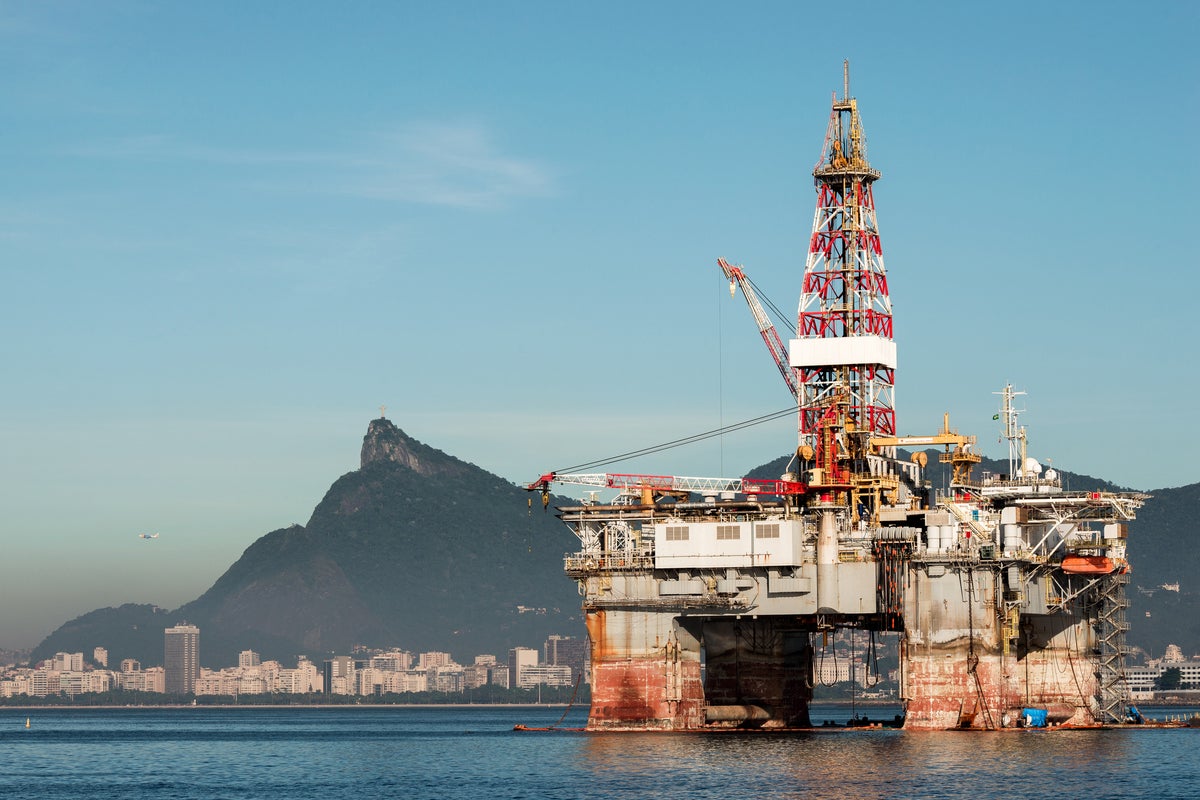The UN’s Cop30 climate conference is fast approaching, with thousands of delegates from across the world set to gather from next week to drive forward climate action.
With talks set to be held in the city of Belém – which lies near to the mouth of the Amazon River – host country Brazil has been largely praised for taking its role leading the negotiations seriously, pushing for a stronger settlement on key areas including emissions targets and climate finance for developing countries.
But at the same time as advocating causes like the protection of the Amazon Rainforest and the strengthening of environmental institutions in his country following the Bolsonaro years, Brazilian President Lula de Silva has also been a serious champion for Brazil’s oil industry.
Less than a month before talks are set to begin in Belém, Brazil’s environmental agency, IBAMA, granted state oil major Petrobras a licence to explore oil in the sea off the Amazon, despite serious environmental concerns about the project.
Notably, there are concerns that any oil spills would put the rainforest region – which is home to 10 per cent of the world’s known species – at risk of environmental devastation, due to sea currents driving the slick back to shore.
Earlier this year, BP struck black gold after landing its largest oil discovery in 25 years while exploring 400km off Brazil’s coast, with the find set to form a core part of the UK oil major’s plans to boost oil production from 2.3million to 2.5m barrels per day by 2030.
For Taily Terena, a young indigenous activist from the Mato Grosso do Sul region, which lies close to the border with Paraguay, the oil push is very disappointing.
“We really do not need to be exploring for oil fields near the Amazon. Lula says we can do it in a sustainable way, but how can it be sustainable when we know that fossil fuels are not a sustainable thing,” she says.
“From an energy perspective, we do not need it – Brazil has plenty of energy, and we also have a lot of oil exploitation in the areas of the country,” she adds.

Taily is a member of the Terena Nation, which is an indigenous people spread across around 30 villages on the world’s biggest wetland area, the 140,000km2 Pantanal.
Earlier this year, she won the 2025 Global Citizen Prize for her work advocating for indigenous peoples and indigenous women’s rights.
Living as she does in a global biodiversity hotspot – which becomes 80 per cent submerged during the rainy season – for Taily, the fight against climate change is personal.
At the time of speaking to The Independent, it was the Pantanal’s dry season, which for the Terena people increasingly brings concerns related to fires. “Right now, from where I am speaking to you under the trees in my village, I can see the colour of the sun is different, it is orange from the fires all around,” says Taily.
“Our dry seasons are becoming more severe and increasing the risk of fires. Just yesterday, there was a small fire here in the background that spread really, really fast, but we managed to put it out,” she continues. “A few weeks ago we had the same thing: a fire came and burnt all the bushes around my house before we put it out.”
In June 2024, fires in the region were particularly bad, tearing through some 440,000 hectares of the wetlands, leaving the charred remains of monkeys, caimans and snakes in its path. They were 70 per cent more destructive than the previous June fire record for the region – and they were four-times more likely and 40 per cent more intense as a result of climate change, according to the World Weather Attribution research group.
The community believes the fires can be driven by the businesses that “surround our home”, according to Taily – and indeed, it is estimated that 90 per cent of the fires in the Pantanal are driven by human action, according to data from the Mato Grosso do Sul Department of the Environment.
“Unfortunately the punishment for this type of crime is not big, so the agrobusiness just keeps doing it,” says Taily.
Given the threats posed by the climate crisis, for Taily, it is obvious that oil is not the answer. “We need to have clear climate principles,” she says. “We need to do better if we want to be protected from all these climate problems that we have.”
Despite the concerns around Brazil’s oil push, Taily nonetheless believes that a Brazil led by the Lula administration is in a strong position to drive climate talks at CO30 to a good outcome.
Firstly, there’s the fact that Brazil’s institutions and diplomats are generally judged to be pretty effective. “Brazil is very good at diplomacy,” she says.
Moreover, after two years in which the COP climate talks were held in autocracies with far weaker environmental credentials than Brazil, Taily’ believes that the greater space for activists to partake protest around the talks can help drive them to a positive conclusion.
“With civil society from both Brazil and other countries present, we can really push home the message that we are against fossil fuel extraction here in Brazil,” she says.
This article was produced as part of The Independent’s Rethinking Global Aid project
-speaks-as-the-House-Committee-on-Oversight-and-Gov.jpeg?trim=0,0,0,0&width=1200&height=800&crop=1200:800)


